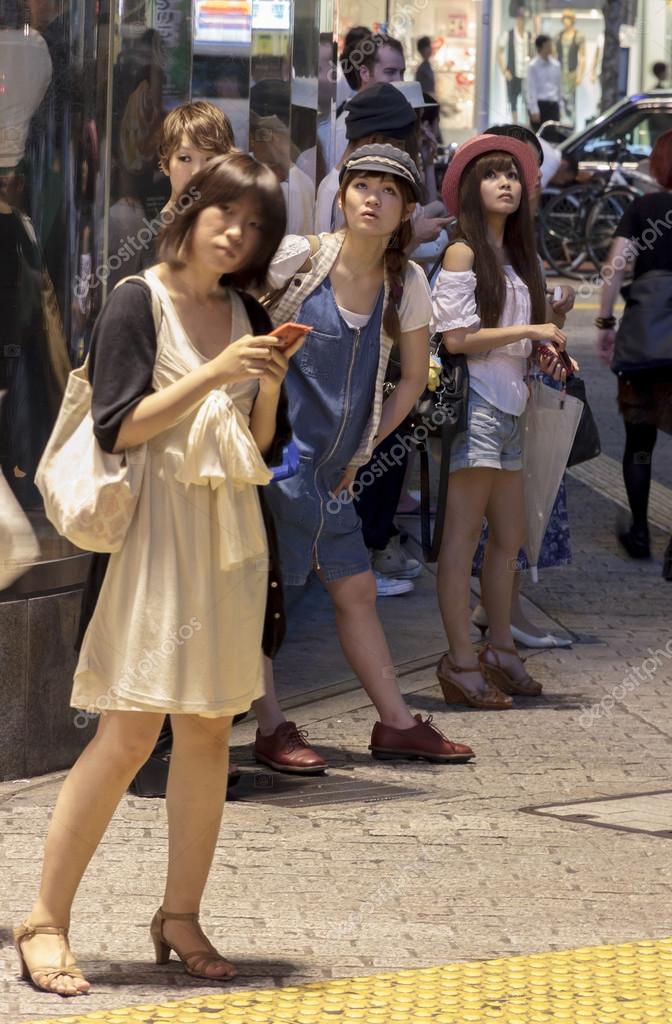Leading by instance may assist change perceptions about what’s potential–and make gender equality a zeitgeist, not just a talking point. There’s a purpose Japan has had a surreally quiet place in the #MeToo reckoning. When an allegation does make the rounds, feminine accusers tend to be shouted down, or blamed, not heard.
The explosion of interest in discriminatory remedy in opposition to women at the office additionally comes amid a rising rejection of sexist norms in Japanese society because the #MeToo movement began gaining floor since 2018. The program listed a number of reasons that employers gave for not wanting women to wear glasses whereas at work. Domestic airlines said it was for safety reasons, companies in the beauty business stated it was tough to see the employee’s make-up properly behind glasses, while main retail chains said feminine store assistants give off a “cold impression” in the event that they wear glasses. Traditional Japanese eating places mentioned that glasses merely do not go well with conventional Japanese gown.
Nanzan Guide to Japanese Religions (three-13 ed.). University of Hawaii Press. p. three. IPSS, “Attitudes towards Marriage and Family among Japanese Singles” (2011), p. four.
Close to 70 p.c of women ages 15 to sixty four now have jobs — a record. But their careers are sometimes held again by a relentless tide of home burdens, like filling out the meticulous day by day logs required by their youngsters’s day-care facilities, preparing the intricate meals usually anticipated of Japanese women, supervising and signing off on homework from school and afterschool tutoring classes, or hanging rounds of laundry — because few households have electrical dryers. KUALA LUMPUR (Thomson Reuters Foundation) – Japanese women have taken to Twitter to demand the right to put on glasses to work after reports employers have been imposing bans, in the latest social media outcry against inflexible guidelines on women’s look.
However, this current consideration to decorate codes underscores the truth that the standard attire at a Japanese workplace is rather more traditional than it’s in Western international locations right now. Despite these challenges, more Japanese women are in professional and management positions than they were in the past, although the numbers are nonetheless far beneath ranges you might see in different international locations.

Abe claims Japan’s rate is now nearly 70%–higher than the U.S. It’s an interesting narrative, given how little success Abe has had restoring Japan’s progressive mojo. Deflationary spirits continue to stir, and wages are stagnant regardless of a synchronized world expansion. It’s a rare tailwind Abe might’ve ridden to loosen labor markets, cut red tape, catalyze a startup increase and end Tokyo’s addictions to debt and easy cash.
As may be seen in the determine, Japan has not adopted the development of other Western nations of kids born outside of marriage to the identical diploma.
‘There are nearly no women in power’: Tokyo’s feminine workers demand change
National Institute of Population and Social Security Research (IPSS). “Attitudes toward Marriage and Family among Japanese Singles.” 2011. Marriage in Japan is a legal and social establishment at the middle of the family. Couples are legally married once they have made the change in standing on their family registration sheets, with out the need for a ceremony. Most weddings are held either based on Shinto traditions or in chapels according to Christian marriage traditions.
TOKYO (4 a.m.)
IPSS, “Attitudes toward Marriage and Family among Japanese Singles” (2011), pp. 20-21. IPSS, “Attitudes towards Marriage and Family amongst Japanese Singles” (2011), p. 2.
Long hours on the workplace and the heavy obligations that come with administration posts are also a deterrent. For example, I consulted for an American company that was within the means of being acquired by a Japanese agency and was teaching a seminar on Japanese company tradition to the executive staff. During a break, one woman on the team approached me and advised me that what I introduced in the seminar had matched what she had present in her own research, but that I had left out one key level — she had read that Japanese men don’t like to work with women and, based on that, she was planning on skipping a key meeting with the new Japanese owners of her firm. I informed her that if Japanese men didn’t like working with women, I wouldn’t have a job. But I additionally identified that a lot of the knowledge out there on tips on how to work with the Japanese is from books that have been written within the Eighties when the scenario of women in Japan was very different.
According to the BBC, a number of Japanese retailers mentioned companies have “banned” women from carrying eyeglasses and that they give a “cold impression” to feminine store assistants. But judging from the response, the information has touched a nerve among Japanese women uninterested in having their our bodies scrutinized and controlled in ways that they are saying their male counterparts usually are not. All of this was apparently news to many women in Japan, who, upon listening to what their fellow women have needed to endure, took to social media to interrupt that glasses ceiling. From mandatory excessive heels to a ban on glasses, Japanese women have been busy pushing again in opposition to restrictive and anachronistic dress codes in the workplace in 2019.
Share Your Voice With Savvy Tokyo’s Readers
Go simple on the accessories and makeup, and skip the fragrance. Many Japanese people discover perfumes and colognes bothersome — so much how to date japanese women so that a time period, sumehara (a portmanteau of “smell” and “harassment”), has come into trend describing the annoyance.
Post-war interval (1945–current)
In November 1911, a manufacturing of Henrik Ibsen’sA Doll’s House, starring the attractive young actress Matsui Sumako (1886–1919) and directed by Shimamura Hogetsu (1871–1918), opened in Tokyo.¹ Although it was solely a university production, the strong performance by Matsui and the explosive message of the play generated appreciable consideration from the popular press.A Doll’s House, with its suggestion that marriage just isn’t sacrosanct and that man’s authority within the house shouldn’t go unchallenged, created an instantaneous sensation in a society where women had few, if any, rights. Last month I wrote about how the Japanese are inclined to react negatively to aggressive debate when discussing an issue, it doesn’t matter what your gender is. Not surprisingly, some Japanese discover it notably grating when the confrontational strategy is coming from a lady, as a result of conventional cultural expectations of girls in Japan. In 2015, Article 733 of Japan’s Civil Code that states that ladies can’t remarry 6 months after divorce was reduced to a hundred days.

